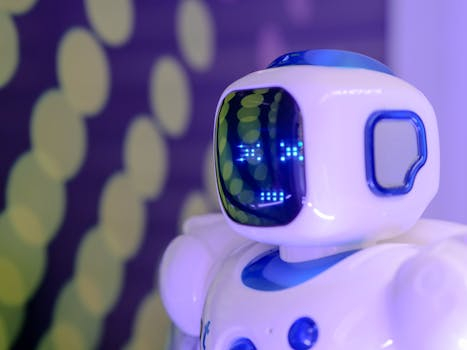AI vs. Human: Can Smart Gadgets Truly Predict Your Daily Routine?
In today’s fast-paced world, technology continues to push the boundaries of what we thought was possible. One of the latest advancements that has sparked excitement and debate is the use of Artificial Intelligence (AI) to predict human behavior. With the rise of smart gadgets and the popularity of virtual assistants, such as Amazon’s Alexa and Google Home, it begs the question: Can AI truly predict your daily routine better than a human could?
The Battle of AI vs. Human Behavior Prediction
Human behavior is complex and often unpredictable. We all have unique routines and habits that are hard to predict even for ourselves. However, with the use of smart gadgets and AI, companies are trying to change that by gathering data on our daily routines and using it to make predictions. But how accurate are these predictions?
The Power of AI
AI algorithms are designed to learn from vast amounts of data and make predictions based on that information. This means that the more data that is collected, the more accurate these predictions can be. With the help of sensors and tracking devices embedded in our smartphones and smart gadgets, AI systems can analyze our daily routines and make predictions about our behaviors and habits.
For example, if you use a fitness tracking app and wear a smartwatch throughout the day, the data collected from these devices can be used by AI algorithms to predict your daily activities, such as when you wake up, go to work, and exercise. Similarly, your virtual assistant can gather data on your online and offline activities to create a profile and tailor its responses and suggestions according to your needs and preferences.
The Unpredictability of Humans
While AI may seem like a powerful tool for predicting human behavior, it’s worth noting that humans are not always predictable. We often make spontaneous decisions and change our routines without any prior notice. Furthermore, our feelings and emotions can greatly impact our actions, making it difficult for AI to accurately predict our behavior.
For example, let’s say your virtual assistant has learned that you always go for a run at 7 am every morning. However, one morning, you wake up feeling unwell and decide not to go for a run. This change in routine can be challenging for the AI system to predict, leading to inaccurate suggestions and recommendations.
The Limitations of AI in Predicting Human Behavior
While AI has shown remarkable advancements in predicting human behavior, there are still some limitations that need to be addressed. One of the major challenges is the lack of personalization and individuality. AI systems rely on gathering data from a large number of people to make predictions, which means that their suggestions may not be tailored to your unique needs and preferences.
In addition, there is a concern surrounding privacy and security with the use of AI to predict human behavior. With the amount of data being collected and stored, it raises questions about who has access to this information and how it can be used.
The Role of Humans in Predicting Their Own Behavior
Ultimately, the best predictor of human behavior is humans themselves. We have the ability to introspect and understand our own routines and habits, making us better equipped to predict our own behavior. While AI can provide helpful suggestions and recommendations, it’s ultimately up to us to decide if we want to follow them or not.
Moreover, AI can never fully understand the complexities of human emotions, thoughts, and motivations. Our behavior is influenced by various factors, such as cultural, social, and environmental, which can be difficult for AI to comprehend.
The Verdict
So, can AI truly predict your daily routine? The answer is both yes and no. While AI can make some accurate predictions based on the data it gathers, it’s still not a match for human unpredictability and individuality. As technology continues to advance, we can expect AI to get better at predicting human behavior, but it will never be a perfect predictor.
In the end, it’s up to each individual to decide whether they want to rely on AI to guide their daily routines or continue to trust their own intuition and instincts. With the potential for misuse and limitations in its ability to predict human behavior, it’s essential to approach AI with caution and use it as a tool rather than a replacement for our own decision-making. After all, there’s nothing quite like human intuition and free will.










